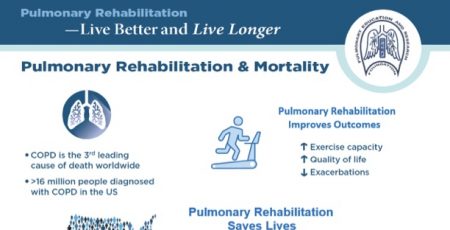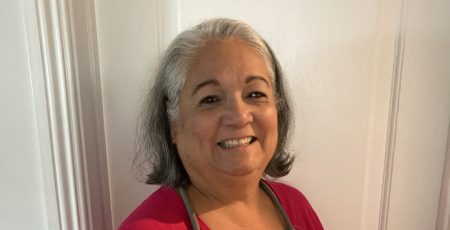
24 Jan The Four Stages of COPD, Explained
COPD isn’t just one disease – it’s many. And if you or a loved one have COPD, you know that symptoms can vary not just by year, but also month-to-month. Doctors use four stages to describe the severity of COPD, allowing them to provide the most appropriate treatments for each stage.
What Is the GOLD System for COPD and why is it important?
The Global Initiative for Chronic Obstructive Lung Disease, or GOLD system, was started by several major medical organizations, including the World Health Organization, in 1997. It aims to raise awareness and understanding of COPD by classifying the severity of the disease based on symptoms, lung function and whether you’ve had any COPD flare ups. Today, doctors use the GOLD system to describe severity, track progression, and optimize treatment of a patient’s COPD.
The GOLD system takes into account your symptoms as well as how often your COPD has gotten worse, hospital stays because of COPD, and the results from your spirometry.
The GOLD system replaces an older system which primarily used spirometry (lung function results) alone.
So what are the stages of COPD in the GOLD system?
The four stages of COPD in the GOLD system are as follows:
Stage I: Early
When COPD first appears, it is very gradual and often takes years to progress, but by the time a patient has symptoms, they typically have already experienced lung damage. That’s why it’s so important to keep an eye out for early signs if you’re at risk for COPD!
Typically, COPD starts with a nagging cough that can be dry or contain mucus. You may also notice shortness of breath when you exert yourself.
What will the doctor do to test me for COPD?
It can be easy to ignore the early symptoms of COPD or simply assume they are just part of getting older. The best thing to do is tell your doctor if you have breathing symptoms, especially if you have been a smoker at any time in your life or worked in an environment with bad air quality. The best treatment for COPD is to catch it early! Slowing the progression of the disease will allow you to enjoy the fullest health possible. Your doctor will perform 2 tests to confirm the presence of COPD:
- A simple physical exam
- Spirometry: Your doctor will ask you to take a deep breath in and blow hard into a tube connected to a spirometer machine. This will measure how well your lungs are working.
Your doctor may also perform an alpha-1-antitrypsin (AAt) deficiency test, a chest X-ray or CT scan, other lung tests, a 6-minute walk test, or blood tests.
Stage II: Moderate
As COPD progresses, it will start to affect your day-to-day life. Because of this, it’s the most common phase when people go to the doctor.
What Are the Symptoms of Stage II COPD?
Stage II is the natural progression of stage I symptoms, including:
Frequent or constant coughing that contains mucus (usually worse in the morning)
- Feeling tired
- Shortness of breath that makes common activities a challenge
- Trouble sleeping
- Wheezing
You may also feel forgetful, confused, or have slurred speech.
You have stage II if your FEV1 (forced expiratory volume in 1 second, measured during a spirometry test) is between 50% to 80% of the normal value for someone of your age, sex, height and race.
During stage II, you may also start to have flare-ups, called exacerbations, when your symptoms intensify for a few days.
At this point, your doctor may prescribe bronchodilators, which help make breathing easier. They may also refer you to pulmonary rehabilitation.
Stage III: Severe
During stage III of COPD, patients experience intensified symptoms, such as intensified shortness of breath, coughing and tiredness as well as more frequent flare-ups.
Typically, you will also experience new signs of COPD progression, including getting colds more often, feeling tightness in your chest, swelling in your ankles and feet, having trouble catching your breath, and breathing issues when you exert yourself. Although your symptoms may have gotten worse, it’s important to stay active and pursue a healthy lifestyle to minimize COPD’s progression.
If you have not already completed a pulmonary rehabilitation program, ask your doctor for a referral. Pulmonary rehabilitation includes exercise training classes, with expert therapists, and is one of the most effective treatments available for alleviating your symptoms.
Stage IV: Very Severe
During stage IV of COPD, your quality of life will be lower, as your COPD begins to more greatly affect every activity. It will be difficult to breathe even without exertion.
Chronic respiratory failure can also occur, in which not enough oxygen moves from your lungs into your blood or when your lungs don’t take enough carbon dioxide out of your blood.
You doctor may prescribe supplemental oxygen to help with your breathing. At this point, other treatment options include surgery, having special valves implanted into your lungs, or lung transplantation.
What can I do today to limit the progression of COPD?
Thankfully, whatever stage you are at, treatment and rehabilitation can go a long way in managing your COPD! Visit the PERF blog to learn more about pulmonary rehabilitation and the simple changes you can make to your life to help lessen your symptoms.





Richard Winkelman, Sr
Posted at 16:56h, 19 JulyI’m at stage 3 now
PERF
Posted at 11:31h, 20 JulyDear Richard,
It is difficult to write a response to your email “I’m at stage 3 now”. What makes you think that? Has your pulmonologist told you that you are at Stage 3 or did you decide this after reading our article? More important is what are you doing about it? For lack of more information I’m going to give you a few suggestions. If you are not already doing so:
1. See a pulmonologist, or get a referral to one.
2. Get a referral to a pulmonary rehabilitation program.
3. Stop smoking.
4. Get help on starting an exercise program. There are many articles on how to do this on our website.
5. Get your flu vaccination as soon as it is offered every year in the early Fall.
6. Make sure your pneumonia vaccination is up to date.
and,
7. In these days of COVID-19, be especially careful! Keep up to date with the COVID-19 infection rates in your area. If COVID-19 infections are rising, or already high, think about how to keep yourself safe. Avoid not only crowds, but anyone you don’t live with who is not wearing a mask. Don’t leave home unless it is absolutely necessary. Even then, keep at least a 6 foot distance. Always wear a mask outside of the house, and wash your hands frequently with alcohol gel or soap and hot water. Is all this tough to put up with? You bet it is, but not as hard as it would be to survive COVID-19!
Also remember something Dr. Tom Petty told me thirty years ago. (Read the many letters he wrote my patients which are now saved on our website.) People used to die of COPD. Now they die with COPD – just as they may eventually die with diabetes or old age. I have had many patients with Stage 4 COPD come to my pulmonary rehabilitation program, barely able to walk, but leave six weeks later walking more than thirty minutes a day and again enjoying life! You too are able to die of old age instead of Stage 3 COPD, but you first need to start helping yourself. Yes, I know, that is the hard part.
Beside my best wishes always remember, You Too Can Get Better!!!
Mary Burns, RN, BS
Richard Winkelman
Posted at 18:14h, 20 JulyTy for the input, I have been in therapy for some time now, I quit smoking years ago and I have seen and still seeing my pulmonologist frequently, on a number of occasions I run into the exerbation attacks which scares the day lights out of me , but ty for telling me what I have to know and also the support you give , I’m going to be 81 soon and I want to be able to see my great great grandchild when the birth occurs in September
Ty
PERF
Posted at 23:16h, 23 JulyDear Richard,
Congratulations on having already done some very important things right!
You stopped smoking.
You regularly see a pulmonologist, and that means…
You’re probably taking the proper medications.
You said nothing about exercising, learning how to do good pursed lips breathing (PLB) or being on oxygen. I wonder if you have had the benefits of pulmonary rehabilitation. With the COVID-19 isolation in place I’m afraid you are not going to find one now. As you know, you need to be especially careful to avoid getting within 6 feet of anyone you have not been living with. With these constraints (coupled with the extremely low reimbursement they receive from Medicare) many pulmonary rehabilitation centers have closed their doors. It’s such a shame, because it can be a majorly beneficial treatment. Your should ask your pulmonologist about it next time you speak with him/her.
Roughly, where do you live? Do you live alone or do you have someone living with you? These answers might make a difference in the advice we suggest. Of course, suggestions are all that we, or any website, can provide. Your pulmonologist should be your to-go-to source of advice. However, we can sometimes provide some practical advice based on our many years of experience of supporting people living with COPD. Have you looked through our website? There is a huge amount of good information there you can start with. And, you’ve got that great grandchild to motivate you! Believe me, the right motivation makes a huge difference in the improvement I see in my patients. That little baby can provide it for you.
Thank you for reaching out to us, and stay in touch,
Mary Burns, RN, BS
Ria
Posted at 21:03h, 30 JulyI was just told , i have onset of COPD
Nothing else was said except to exercise , stop smoking which in my case I don’t smoke
So where am I with this news ???
PERF
Posted at 18:26h, 08 AugustDear Ria,
I sympathize with your frustration! The first thing you need to do is make another appointment with your doctor. A phone or video appointment would be fine, if they offer that. Ask for a referral to a pulmonologist. You need an explanation of what your problem is, how serious it is, and what he or she suggests be done to help you. It is possible to get COPD without being a smoker. However, there also are other conditions that can cause similar symptoms. There is help available for you, but you first need to find out the cause of your problem. Write down a list of the symptoms that are bothering you. Your doctor then will better be able to help. I am so sorry not to be able to offer more help to your note, but I have too little information to make any other suggestions for you at this time.
Make that phone call for a referral soon! Feel free to write again when you have more information or specific questions, and I will do my best to try to help you.
With Best wishes,
Mary Burns, RN, BS